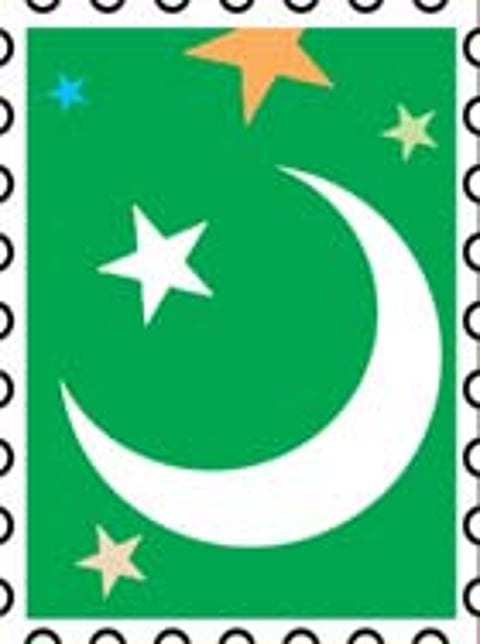Cell-Stripped
Pakistan Diary
Friend Jyoti Malhotra scored a pack of cigarettes in the coffee shop at the departure lounge, but they had no matches or lighters.

“How many times have you been robbed?” It is cruel and intrusive but I cannot help but ask this question of every Karachi resident I meet. Almost everyone I have spoken to has been unburdened of their mobile phone by someone carrying a gun in this Mumbai-sized city whose problem is as much crime as it is extremism. Of the dozens that I have asked this question of, I have yet to meet someone who hasn’t been.
An army officer friend said he had been robbed twice, the second time by a man who came into the car and put a gun into his ribs. The fellow also demanded the car’s keys, but left after the officer told him to calm down and assured him that he wouldn’t follow him. Hearing the bit about the keys, I had assumed that it was because the gunman wanted the car, but apparently it’s only the mobile phones, easy to find and to sell, that they go after.
The record, incidentally, belongs to the cabbie who drove me from the airport to the Avari Towers hotel in the middle of the city. Ten times, he said. Was he sure, I asked. Yes, he said, seven times at gunpoint and three times it was snatched away while he was talking with the engine idling and the window down.
ID Crisis
I am in Pakistan for a Track II event (hosted by the Jinnah Institute) and to attend the Karachi and Lahore litfests. For the first time in my many visits to this country, I have been given a visa that requires police reporting. That means going to the station with several documents (sponsor letter, sponsor’s identity card, visa information letter, photographs etc) within 24 hours of arriving in a city and then again just before leaving. Each time the process takes a couple of hours, sometimes longer. Since I am visiting several cities, and some of them twice, this promises to be particularly painful. It is, except in cities where friends know the police and manage the ‘reporting’ without my having to go to the station. It is remarkable that Pakistan, which has close to zero tourism, should inflict this condition on Indians, who I think will be willing to visit the country in large numbers if allowed. True, India also does this to visiting Pakistanis, but why do something that is ultimately damaging to your interests on the principle of blind reciprocity?
Doyenne vs Doyenne
At the Lahore literature festival, Hameed Haroon, owner of the Jinnah-founded Dawn newspaper, does a session on Pakistan’s most revered singer, the late ‘Madam’ Noor Jahan. Her two ravishing daughters are also on the stage with Haroon. Quickly and perhaps inevitably the subject turns to Lata Mangeshkar. I do not wish to belittle her, says Haroon, before proceeding to do just that. Apparently, Lata wouldn’t have been as successful had Noor Jahan chosen to stay in India. And apparently she once fell at Noor Jahan’s feet in submission. The daughters join in and one of them says, to applause, that Lata had too thin a voice and not much projection and always sang with her palms cupping her mouth to amplify her voice.
Deja View
I translated Saadat Hasan Manto’s non-fiction (astonishingly, most of this work had not been translated before, including his descriptions of Bhendi Bazar and Mahim during the Partition) and that is the book I am peddling in Pakistan. In one of the essays from the book, Manto recounts going to a railway station just after Partition and being told there were no tickets available between Lahore and Karachi. He does the Indian thing and asks the booking clerk to take his cut and issue the ticket. He cannot, the clerk assures him sternly, because “yeh Pakistan hai”. I was reminded of this at Lahore airport. While waiting for a delayed flight (PIA has only 19 aircraft, all of them very old), friend Jyoti Malhotra scored a pack of cigarettes in the coffee shop at the departure lounge, but they had no matches or lighters. “Yeh kaisa shehr hai,” muttered an irritated Malhotra. The fellow behind the counter replied immediately: “Yeh Pakistan hai.”
Youthia Brigade
The Aam Aadmi Party equivalent of Pakistan is Imran Khan’s PTI (Pakistan Tehreek-e-Insaaf). It has the same mix of enthusiastic young followers and a charismatic leader claiming that all were corrupt before him and that his honesty and a ‘new system’ would change politics forever. The PTI followers are intolerant of the opposing view and as self-righteous as the AAP tends to be in our parts. Imran’s faithful have been given a name that was coined on Twitter. It riffs on their age and their irrational exuberance, and combines the two brilliantly in a word that everyone in South Asia will understand: Youthia.
At the Noor Jahan session...
Haroon introduces and plays clips of ‘Madam’s’ songs, many of which he says have had to be restored because they suffered in the archive or were forgotten. Not a problem with Lata’s songs, of course.
Aakar Patel is a writer and a columnist.
Tags